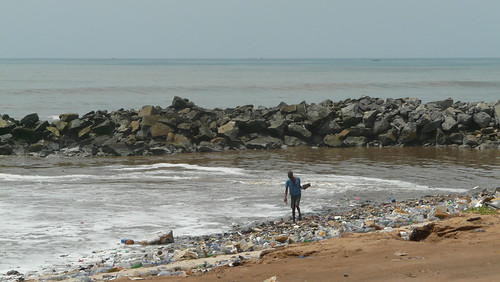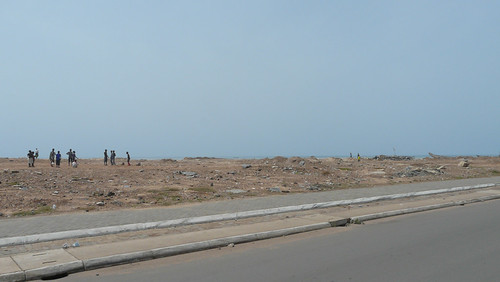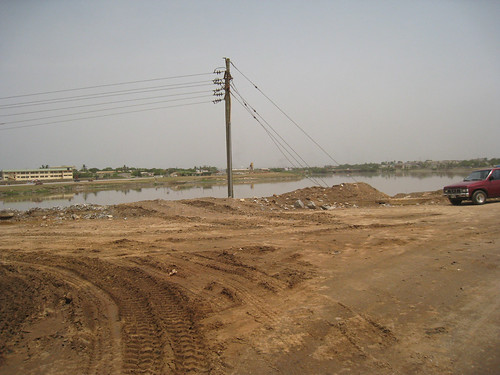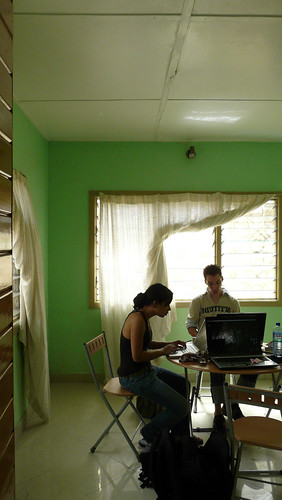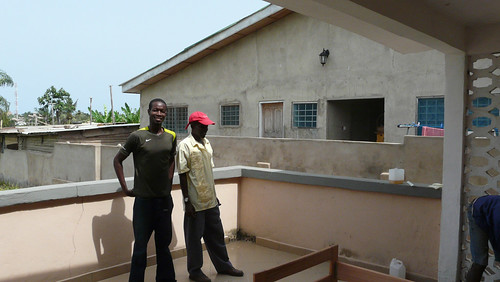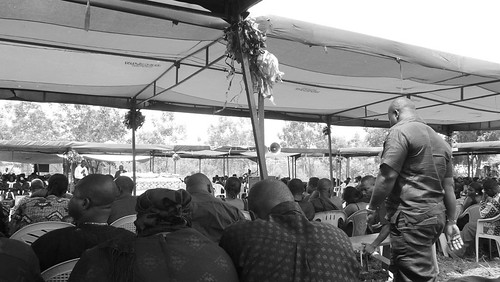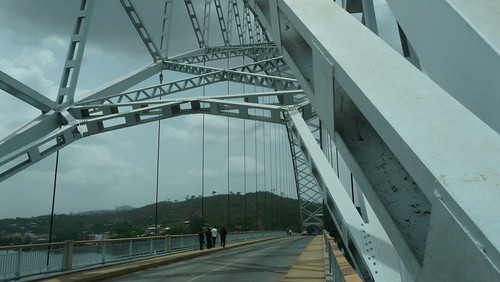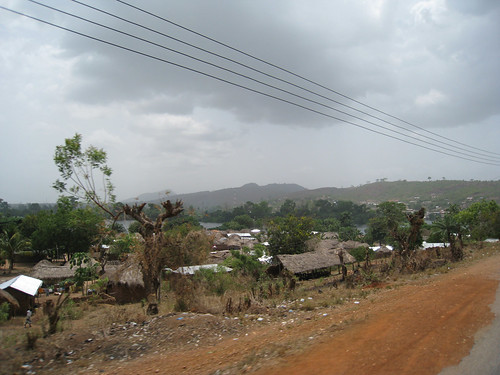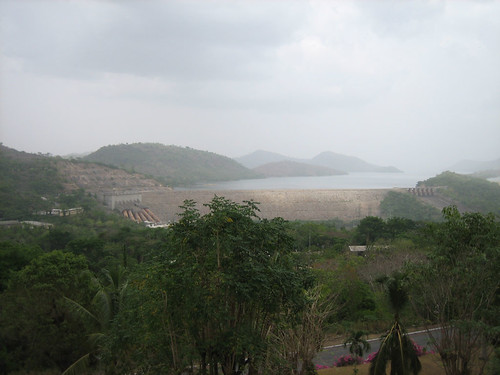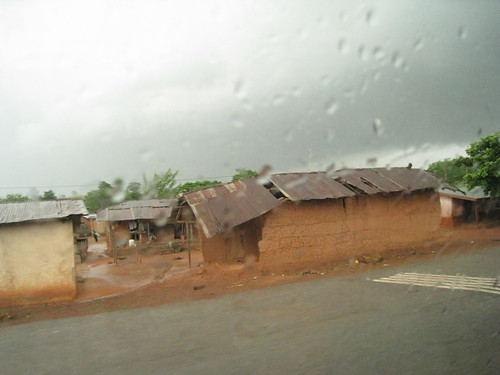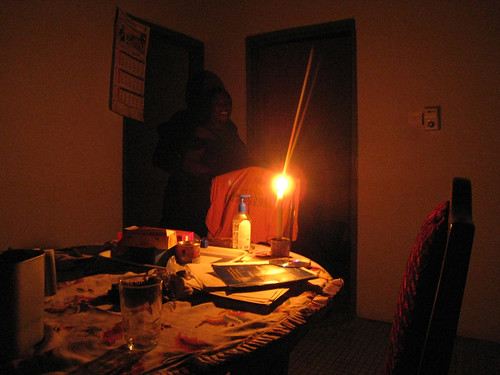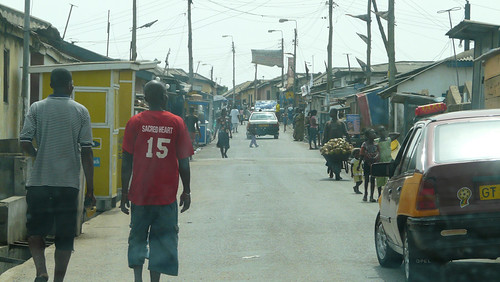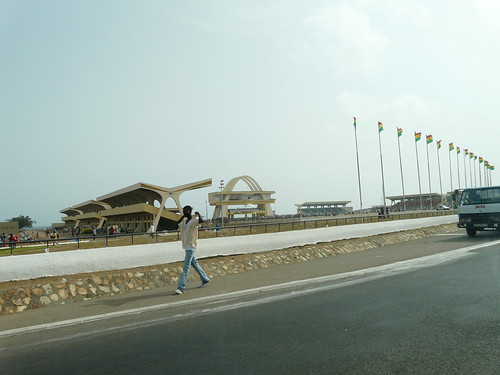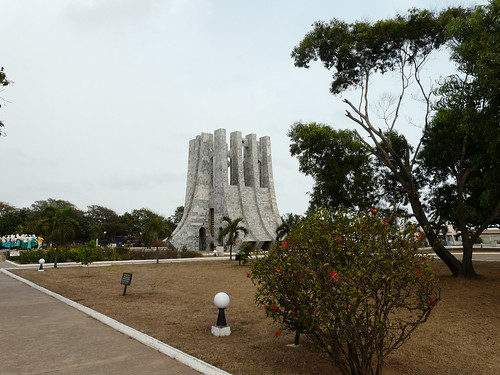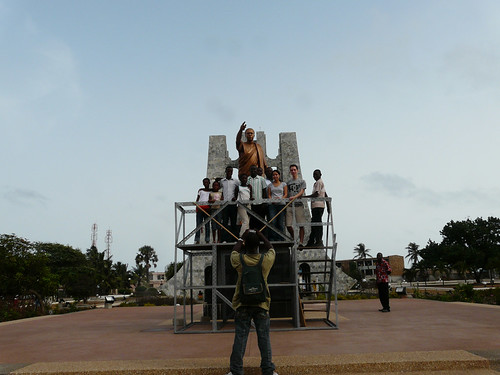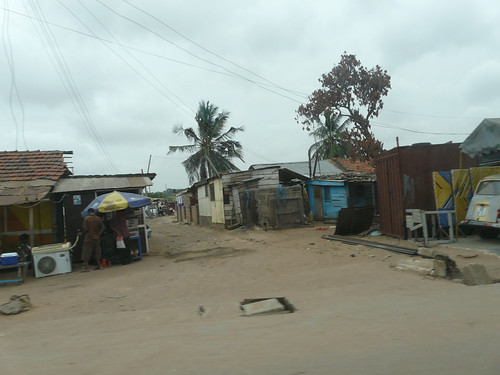We inquired about their contacts, and its interesting to note that there does not seem to be a lot of connectivity between European/American NGOs and the local governmental organizations. I guess it is logical that these NGOs are not tied to the local government, but it seems like a missed opportunity, as the Hydrological Department, Disaster Expert Wise Valence, Town and Country Planning, and the National Survey Department have been key to our understanding of the flooding situation in Ghana.
Gabriela received a couple of wedding proposals and Arie became the center of attention a few times as we visited our new site, the Lafa Basin. It is beautiful and really low lying! Another bit of news... we happen to have moved inside the Lafa Basin, in the neighborhood of Dansoman. It only takes us about 20 minutes to walk to the salt pond, which means we are living in one of the most flood prone areas of Accra! We will show you the map of the basins in a few days. We asked about evacuation plans as well, which we will soon get from NADMO. The protocol is rather simple though: if you see hard rain coming then run to Odoko. Its really far for us though, so the we may just invest in a boat and some life jackets, especially since Shilesh does not know how to swim. He said he had problems at Tropicana. Ha! We will take care of him though, do not worry.
This weekend Wise has invited us to stay with him at his house in the Volta region. He offered to show us the tallest water fall in Africa and Afadjato mountain. It is going to be a real treat. We are also planning to meet with Simon, Environmental science PhD student from Univ. of Ghana, currently working for the EPA. Good excuse to go shopping for hiking boots and light-weight cotton clothes of local prints.

Animals for Disaster Waste Recovery ?!

Lafa Basin

Flood Affected House.

Lafa Basin

